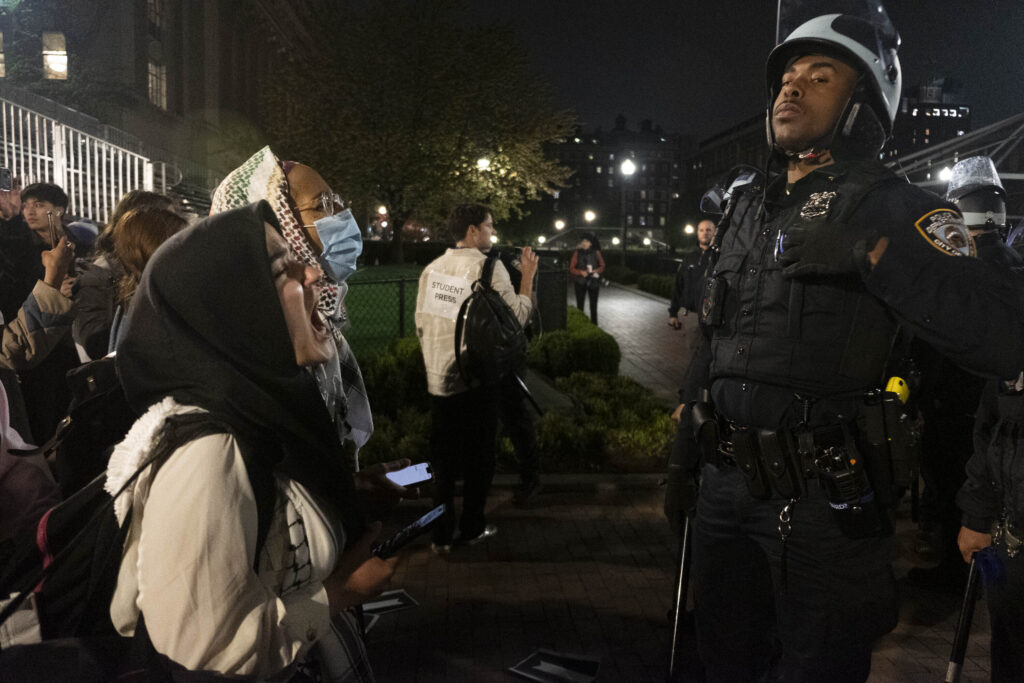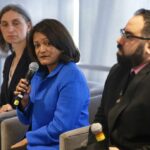
Thirteen federal judges announced Monday they would cease hiring law clerks from Columbia University after school administrators permitted a pro-Palestinian encampment on its lawn and allowed the “virulent spread of antisemitism” on campus.
“Considering recent events, and absent extraordinary change, we will not hire anyone who joins the Columbia University community — whether as undergraduates or law students — beginning with the entering class of 2024,” the judges said, according to the joint letter obtained by the Washington Examiner.

The boycott is led by U.S. Court of Appeals for the 5th Circuit Judges James Ho and Elizabeth Branch, who both led similar efforts to boycott the hiring of clerks from Yale Law School in 2022 and Stanford Law School in 2023 over free speech concerns, and Matthew H. Solomson, a judge on the U.S. Court of Federal Claims.
“Since the October 7 terrorist attacks by Hamas, Columbia University has become ground zero for the explosion of student disruptions, anti-semitism, and hatred for diverse viewpoints on campuses across the Nation,” the letter added.
Although 12 judges joined the Yale boycott anonymously, Monday’s letter is the first time more than two judges have come out publicly in support of a boycott of a university. With similar encampments allowed to continue for weeks across the country, it is unclear whether the group of judges could extend their boycott to similarly situated universities.

Two-thirds of the signatories are based in Texas, including U.S. District Judge Matthew Kacsmaryk, who gained national attention last year by suspending approval of the abortion pill mifepristone in a case now before the Supreme Court.
The letter announcing the boycott of clerks from Columbia comes one week after students occupied the university’s Hamilton Hall, which resulted in administrators calling on the New York Police Department to break up the protest. It also comes days after the Columbia Law Review’s Administrative Board student editors released a statement asking for widespread exam cancellation for law students “out of concerns for equity and academic integrity” due to “this horrific time for our campus.”
Ho and Branch’s previous Yale Law School boycott was due to a string of incidents in which speakers who were invited to the school’s campus were shouted down in student demonstrations. Their boycott was later extended to Stanford after their 5th Circuit colleague, Judge Kyle Duncan, was kept from giving a speech at the school with the aid of the law school’s diversity dean.
“Freedom of speech protects protest, not trespass, and certainly not acts or threats of violence or terrorism,” the judges wrote, showing a distinction between the Columbia boycott and their efforts to spur free speech with their Yale and Stanford boycotts. “It has become clear that Columbia applies double standards when it comes to free speech and student misconduct.”
Solomson’s signature of the letter also marks a change for the federal claims judge, who previously called the boycotts of Yale and Stanford a form of collective punishment.
The judges said there should be “serious consequences” for students and faculty who have violated the university’s rules surrounding the use of “facilities and other public spaces and threats against fellow members of the university community.”
“In recent years, citizens have been told that unlawfully trespassing on and occupying public spaces is a sufficient basis to warrant incarceration. So that same conduct should surely be sufficient to warrant lesser measures such as expulsion or termination,” the judges added.
The letter also claims that there is a double standard on college campuses, arguing that if Christians on campus staged an encampment protest “because they view abortion as a tragic genocide, we have no doubt that the university’s response would have been profoundly different.”
CLICK HERE TO READ MORE FROM THE WASHINGTON EXAMINER
Although the letter marks the most federal judges to sign on to a boycott letter publicly, the 13 judges represent a small percentage of the nation’s nearly 900 federal judges.
Read the full letter here:
Letter by Kaelan Deese on Scribd







